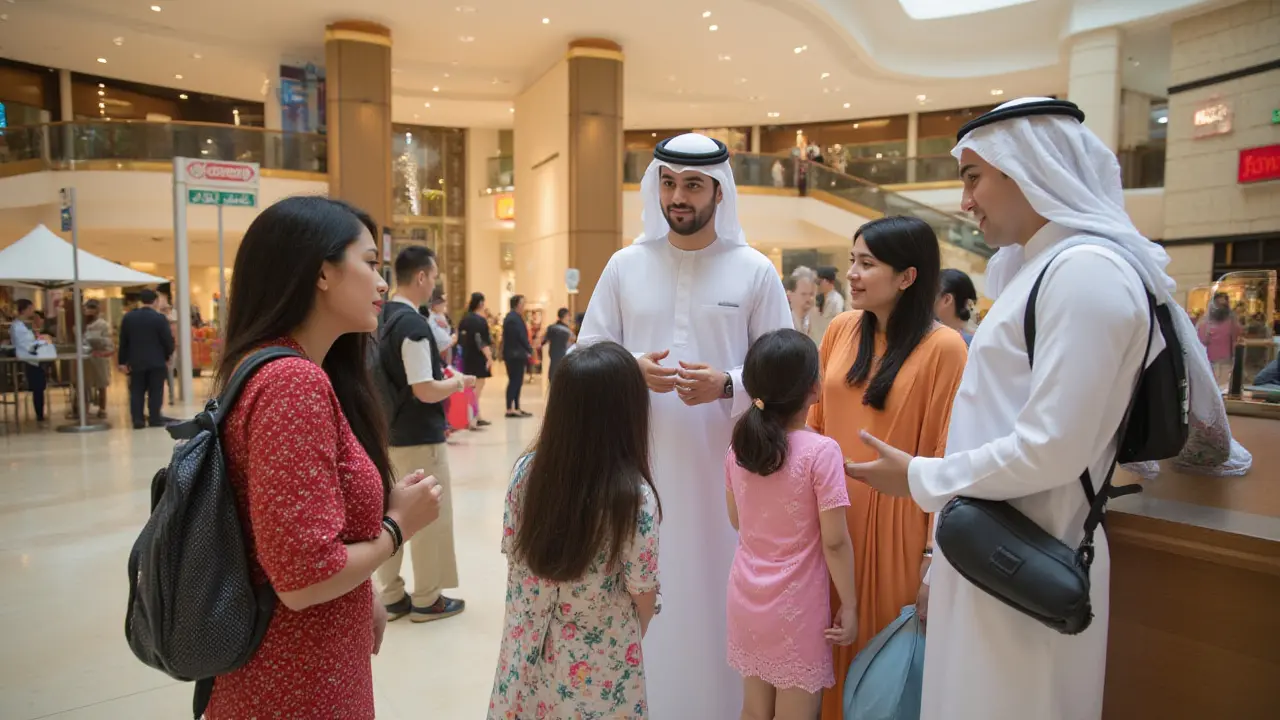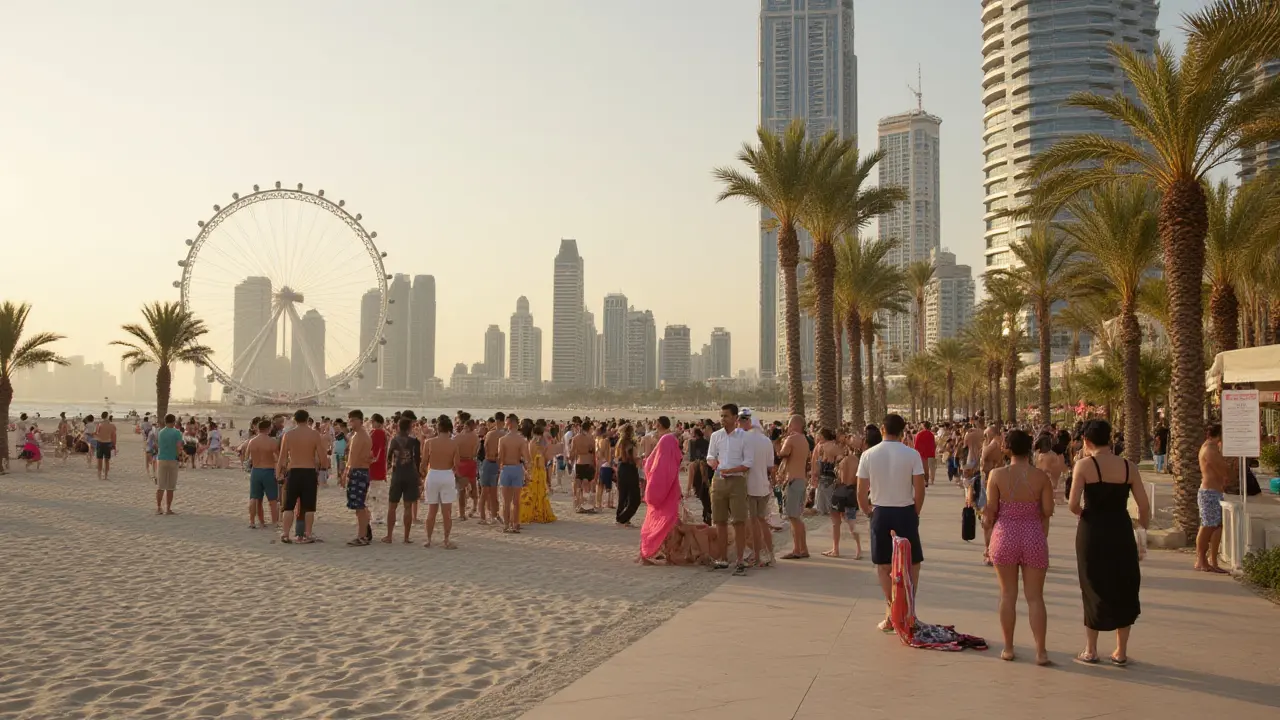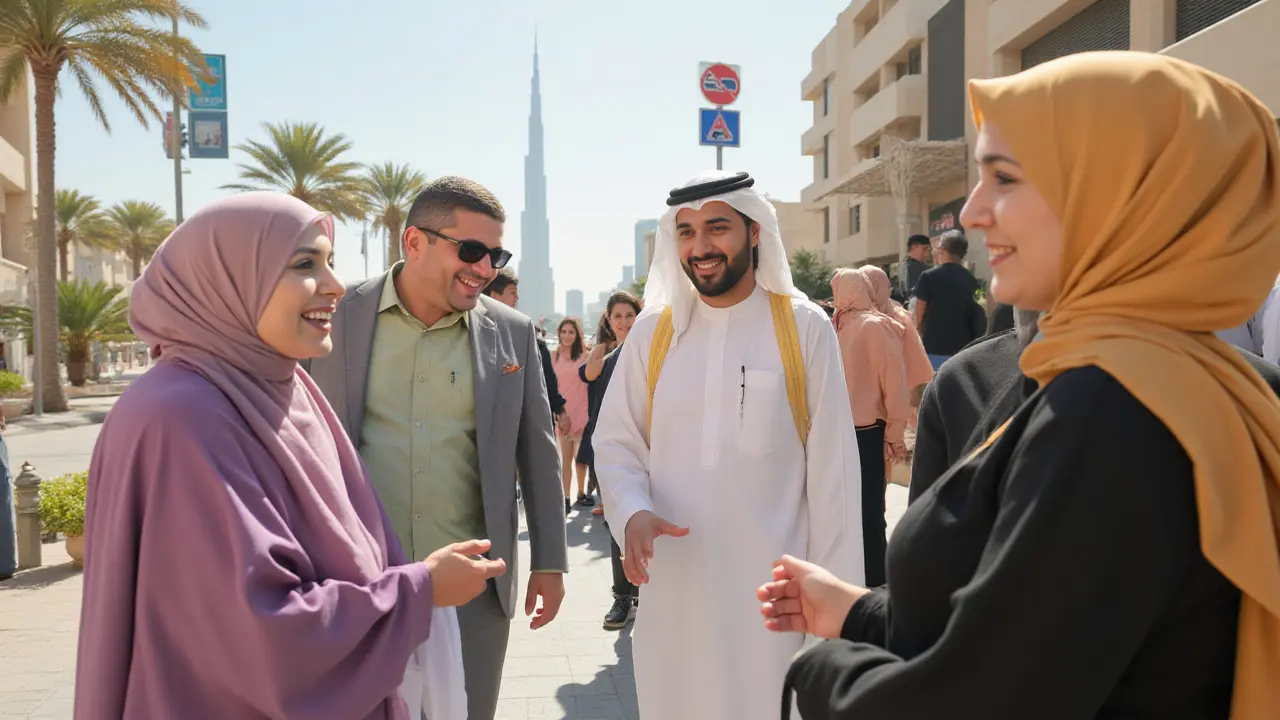The Heart of Dubai’s Unspoken Rules: What Locals Know That Tourists Miss
Picture this: you’re strolling through a glittering Dubai mall, taking in the ultra-modern skyline, when a security guard politely gestures for you to button up your shirt. Or maybe you’re laughing with friends at a cafe, only to notice people giving you sideways glances because of how loud you’re being. Sound familiar? That’s where Dubai’s unspoken rules kick in. These aren’t just official laws posted on signboards—these are invisible boundaries woven deep into everyday life. Most guides won’t tell you about them, but if you want to avoid awkward moments and truly enjoy your time, you have to pay attention. Trust me, standing out for the wrong reasons here isn’t the memory you want.
If you come from a Western city, Dubai may look like another cosmopolitan playground, but scratch the surface and things get interesting. This city is a melting pot, rooted in Islamic traditions and Emirati values—layered with an international, 21st-century vibe. People from more than 200 different countries live and work here, but it’s those Emirati customs that set the social tone. Dubai rewards visitors who show respect for its norms, even the unspoken ones. The rules aren’t meant to trip you up; they’re about preserving harmony, protecting privacy, and making everyone feel safe to be themselves in public spaces. It’s a balancing act between old-school respect and live-and-let-live. Mess this up, and the best you’ll get is a warning. Most who slip up simply get a friendly correction, but certain lines (like public displays of affection or disrespecting religion) can lead to fines, trouble with authorities, or worse.
For example, take dress code. Malls, mosques, and government buildings all expect modest attire—not a rule on every door, but the eyes of security and locals will remind you. You won’t see signs saying “No Kissing,” but a couple holding hands or kissing in public could be stopped by mall staff or even the police. During Ramadan, you can smell food everywhere, but eating or drinking in public between sunrise and sunset is a serious no-go. Even chewing gum at the wrong time gets you dirty looks. Tolerance is the name of the game—but tolerance here means everyone gets to feel comfortable. That’s why watching your decibels in busy places matters more than you’d guess, and why showing the soles of your feet to someone by accident can feel much ruder than it would back home.
It’s not just about avoiding trouble. Mastering these unspoken rules is a kind of social currency. The moment you show a bit of effort—like greeting shop staff with “Salam Alaikum,” or not snapping selfies inside a mosque—you’ll notice how much warmer the locals get. The vibe goes from transactional to genuinely welcoming. If you play by the hidden rules, a simple taxi ride can turn into a cultural insight session you’ll remember. Break them, and suddenly that friendly energy disappears.

Daily Life Etiquette: Navigating Public Spaces, Work, and Social Gatherings
Let’s get into the details—the nitty-gritty stuff that catches visitors off guard. Start with public spaces. Dubai is super clean, and that’s not by accident. There’s an unspoken expectation that you’ll keep things tidy, and even throwing a tissue on the ground can get you a fine or stern warning. And don’t even think about jaywalking. Not only is it illegal, but it’s one of those things locals find inconsiderate. Respect for public order goes deep: blocking escalators, being pushy in lines, or playing music loud on public transport will draw icy stares, and maybe even a tap on the shoulder from a security guard.
There’s more to social behavior than just how you move. Public displays of affection are a tricky line to walk. Holding hands if you’re married is tolerated, but hugging or kissing can get you into hot water. An unmarried couple holding hands or being overly affectionate is a fast track to an awkward run-in with mall security. When someone you’ve just met goes in for a handshake, pay attention: if they’re local, especially women, wait for them to offer their hand first. Many Emiratis, and some Muslim expats, avoid physical contact with the opposite sex in public. It’s never personal—just a matter of tradition and respect.
Social gatherings are their own minefield of subtle rules. If you get invited to an Emirati home, bring a small gift (think dates or chocolates—not wine), and always remove your shoes before entering. When you greet someone, it’s common to start with the eldest person in the room—a way of showing respect. Tea or coffee is usually served, and refusing a cup without a polite excuse can be considered rude. Ever notice how people never pour with their left hand? That’s because the left is reserved for less clean tasks—use your right whenever you’re giving, receiving, or eating. These small details speak volumes about your respect for the culture.
Work culture here is another world altogether. Timeliness is valued, but flexibility is normal around start and finish times for meetings. Still, don’t make people wait without giving notice. Honoring hierarchy is important: defer to senior staff, avoid challenging people directly in meetings, and use titles if possible (Mr. or Mrs., even with first names). WhatsApp is the back channel for everything; emails are official, but instant messaging builds trust. Dress for meetings should always lean formal, especially if Emiratis are present—guys, this means button-downs and chinos minimum; ladies, cover shoulders and knees, even if your office doesn’t make it a must. After-hours parties do exist, but oversharing photos from these on social media can be risky for everyone’s reputation.
Religion sets the tone for a lot of these rules, especially during Ramadan. Even non-Muslims are expected to avoid eating, drinking, or smoking in public during the day. Most restaurants put up screens or curtains, and it’s polite to hold off on snacks and gum until sunset. Every Friday—Dubai’s main worship day—expect offices and shops to open later, and don’t be surprised if people duck out for prayers. If you hear the call to prayer (adhan), nobody expects you to join, but don’t blast music or answer a call with speakerphone in that moment. There’s an atmosphere of collective respect that everybody is tuned into. Playing along shows not only manners but also maturity.

Tricky Taboos and Subtle Secrets: Language, Gestures, and Getting Around the City
Some taboos aren’t immediately obvious if you’re new to Dubai. Swearing is a big one. Swear in public, make rude hand gestures, or say something offensive about religion, and you can be fined, arrested, or even deported. Most locals speak perfect English, but talking loudly or getting aggressive with staff or taxi drivers never lands well. It’s tempting to blow off steam after a frustrating delay, but patience and politeness go much further—think of it as the local superpower.
Photography is another zone riddled with invisible lines. Snapping a selfie in front of the Burj Khalifa? Fine. But take photos of people, especially women, without permission, and you risk crossing a major line. The UAE’s cybercrime law is strict: sharing someone else’s face without their okay can lead to legal trouble. Even taking photos of government buildings, airports, royal palaces, or military sites is a big no-no, even if it’s in the background of your tourist shot. When in doubt, just ask. People appreciate the gesture, and you’ll avoid headaches later.
Body language can be a minefield. Showing the soles of your feet, crossing your legs so that your shoe points at someone, or using your left hand for pretty much anything in public can come off as very disrespectful. Avoid beckoning someone with your finger—use the whole hand palm down instead. Spitting is out. Winking can be seen as flirtatious rather than friendly, so save it for private jokes back home. Oh, and never get too animated or angry in a discussion. Calm wins the day here.
Taxis deserve a special mention. Always sit in the back seat unless invited to sit up front. Ladies, if you’re traveling alone, you can request a pink-roofed taxi with a female driver for peace of mind. When you get out, it’s not expected to tip, but rounding up to the nearest dirham is a nice gesture. Don’t eat or drink during the ride and save phone calls for after. Almost all drivers use GPS, but learning a few landmark names in Arabic (like “burj” means tower) can help if tech fails or you hit a language barrier. Never argue about the route during the ride; check the route beforehand and raise concerns gently.
Public transport has its own code. The front-most car on the metro is women and children only—guys, stay away, even if the train is packed. Priority seats and sections are strictly enforced. Eating and drinking are banned across the network, and those rules genuinely apply to everyone, locals and tourists alike. Fines are routine: people who drop litter, chew gum, or prop their feet up will get caught by inspectors with eyes everywhere.
When it comes to nightlife, Dubai’s party scene is famous, but alcohol comes with strings attached. Only drink in licensed venues: hotels, bars, or clubs. Never carry drinks out into the street or get drunk in public; the authorities don’t discriminate by passport. The legal drinking age is 21, but don’t be surprised if a bartender checks your ID if you look young. Partying is cool, but starting fights or even being rowdy on the street at 2 a.m. will land you in trouble, even if you’re celebrating a birthday.
Language can get you smiling faces or rolled eyes. “Inshallah” means “God willing” and is used for almost every future plan, big or small. It’s polite, not dismissive, so roll with it. “Yalla” means “let’s go,” handy for moving things along. Learn a few more: “shukran” (thank you), “afwan” (you’re welcome), and “marhaba” (hello) are gold. Locals will melt if you try a bit of Arabic, no matter how awkwardly at first. Just avoid slang or jokes about sensitive topics—what flies in LA or London might land you in hot water here.
So yes, the magic of Dubai is in the details. It’s the city where east meets west, skyscrapers meet souks, and tradition lives side-by-side with luxury shopping and world-class nightlife. But the real secret is in how people respect the space and culture around them. Every unspoken rule is there to help 3 million people from all over the globe share the same city, often without a single harsh word exchanged. Learn the code and you won’t just visit—you’ll belong.
